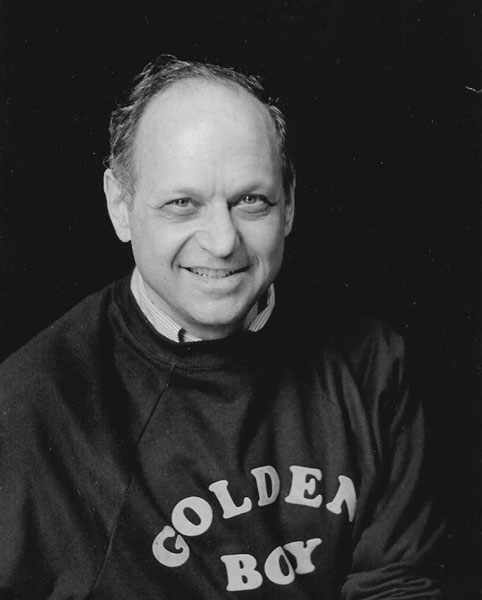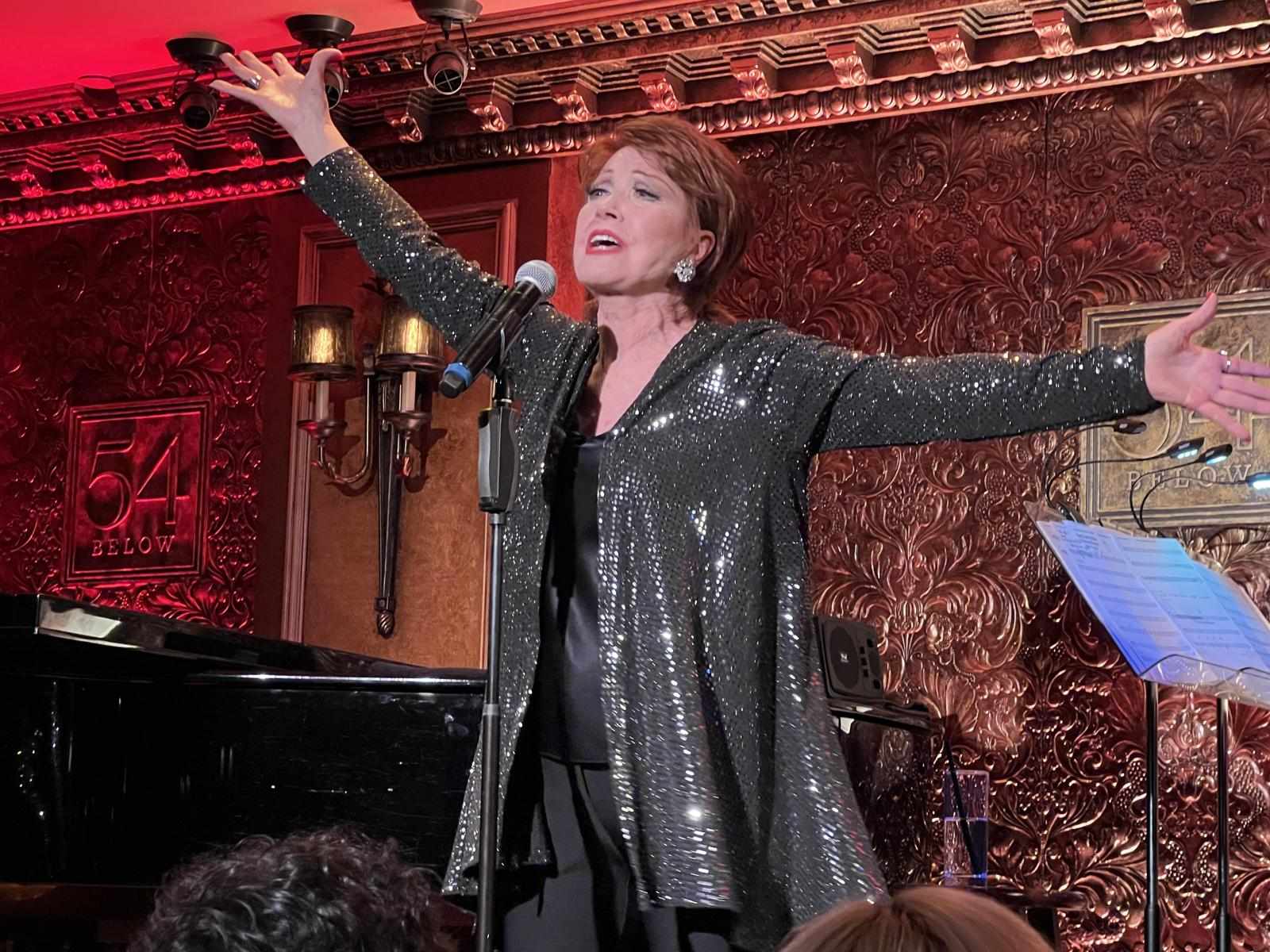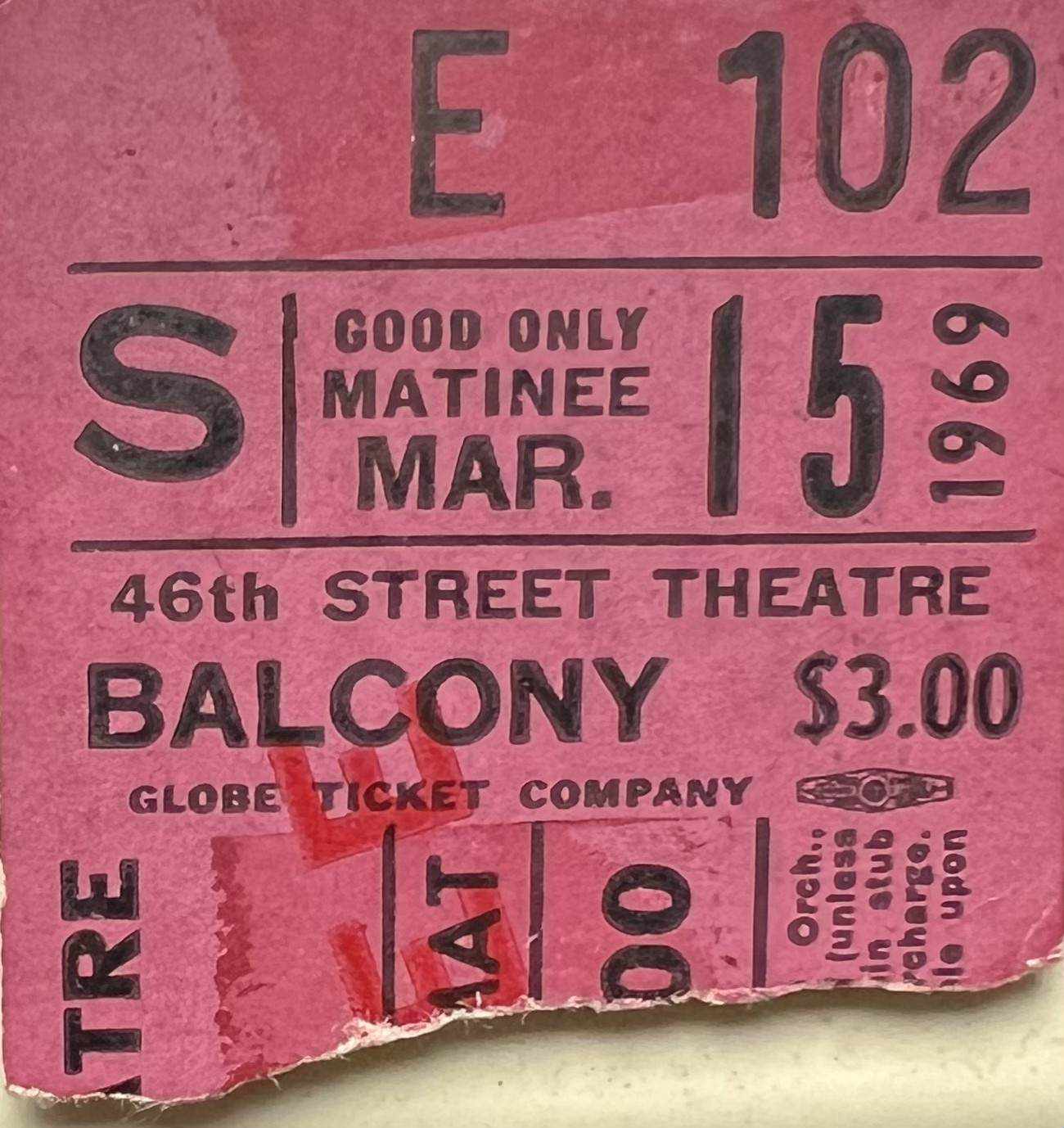
February 20, 2023: Theatre Yesterday and Today, by Ron Fassler
In May of 1964, an election year, a new play opened on Broadway by A. E. Hotchner titled The White House. It depicted a relatively quick history of the presidency up through Woodrow Wilson, a President who left office in 1921. The play doesn't touch on the more than forty years of what would then have been recent history, namely the country having been through Herbert Hoover's disastrous turn, Franklin Roosevelt's unprecedented 13-year stay, Harry S. Truman dropping the atomic bomb, Dwight Eisenhower's fatherly stewardship during a period of economic rebirth, and John Kennedy's brief, but significant time as the youngest elected President, then tragically assassinated less than a year earlier. Much drama there but ignored for purposes of it most probably being too close for perspective. Instead, this speedy review of Presidents and their wives, some consequential and some insignificant, went mostly for nostalgia, bombing with critics. It closed after just one preview and twenty-three performances.
With 10 actors portraying more than 70 characters — including 27 presidents, 13 of their wives, a few presidential doctors, assorted senators, servants, dressmakers, gossips and George Bernard Shaw — the play was certainly ambitious. Its over-the-title stars led a superb cast. Helen Hayes, a ubiquitous presence on Broadway beginning at the age of nine in 1909, had by this time appeared in nearly forty Broadway shows over fifty-five years. That list includes reviving quintessential leading roles in Coquette (for which she won one of the earliest Best Actress Oscars in its film version) and Victoria Regina, where she portrayed Queen Victoria over the course of her sixty-three-year reign. Her status as First Lady of the American Theatre made her a natural to take on Presidential wives in The White House such as Abigail Adams through Edith Wilson, eleven in all (and, if you know your history, there's a reason she doesn't play Martha Washington).* James Daly, known mostly now as the father of actors Tyne Daly and Tim Daly, was someone with a fine reputation first on the stage, and later in film and television (he'd received an Emmy in 1959 for his performance in a Hallmark Hall of Fame production The Eagle and the Cage). Fritz Weaver, a Tony Award winning actor (Child's Play, 1970) and stalwart of the American stage, portrayed Abraham Lincoln in The White House (among other roles). It was a part he would also play in a 1976 off-Broadway one-man show. His long career on stage, film and television included classic appearances on The Twilight Zone, same as James Daly.


The supporting cast featured actors who would later go on to significant accomplishments, first and foremost, Gene Wilder, four years away from his Oscar-nominated turn as Leo Bloom in Mel Brooks' The Producers. A gifted stage actor, it's a pity that after becoming a film star, he returned to the theatre on only one occasion, agreeing to do an evening of Chekhov one-acts at the Westport Playhouse in Connecticut in 2001. This was mainly to help the theatre's struggling subscription base as a personal favor to Joanne Woodward, its artistic director at the time (both had been longtime members of the Actors Studio). Two years prior to The White House, Wilder had won the prestigious Clarence Derwent Award for his Broadway debut in The Complaisant Lover, a British drama which starred Sir Michael Redgrave. His character in the Playbill is listed as "Hotel Valet," so you can only imagine what a spin he must have put on the role in order to be selected as the most promising newcomer of the year, an American among a mostly British cast. And though his talents are preserved for posterity in the dozens of leading films in which he starred, it's sad so few got to see him play Billy Bibbit in the original stage production of Ken Kesey's One Flew Over the Cuckoo's Nest, or the Chaplain opposite Anne Bancroft in Bertolt Brecht's Mother Courage, directed by Jerome Robbins. He must have been something very special indeed.

Also in The White House was Michael O'Sullivan, an actor of outlandish talents, whose life was cut short at age thirty-seven from a possible suicide. In his brief, but memorable stage career, he won praise very early on in a production by the San Francisco Workshop of King Lear (he played the mad monarch at age twenty-seven). Also adept at musicals, he received a Tony Award nomination (and nearly stole the show) in 1966's It's a Bird, It's a Plane... It's Superman. As Dr. Abner Sedgwick, a ten-time Nobel Prize loser and loony scientist out to kill the Man of Steel — the symbol off all things righteous, his performance on the Original Cast Album positively leaps off the vinyl. Then, six months after The White House, he triumphed in a brief run of Moliere's Tartuffe at Lincoln Center. The New York Times wrote "he does a splendid job of showing how a Moliere performance can be larger than life and not out of focus in outrageous arrogance." Described once in an interview as possessing a "dolichocephalic face" (I had to look that one up), here's a photo of him at the recording session for Superman.

The wonderful Sorrell Booke was also in The White House. Forever to be mentioned in the same breath as Boss Hogg, the comic scene-stealer in the long running TV series The Dukes of Hazzard, he was a serious stage actor with a long list of credits. In 1961, he and Alan Alda were cast as father and son in the otherwise all-Black Purlie Victorious, actor Ossie Davis's hit Broadway play. At the time, Booke was a mere 31-years old when cast as "Ol' Cap'n" Cotchipee, repeating his role two years later (with Alda) in the film version, sometimes known as Gone Are the Days. I'm also especially fond of him as the House Detective in What's Up, Doc? ("Use your charm").

In addition to being a playwright, A.E. Hotchner was also an editor, novelist, memoirist and biographer (as one of Ernest Hemmingway’s closest friends, he wrote the best seller Papa Hemmingway). "Hotch," as he was known, was also an extraordinary philanthropist. His money came from when, in 1982, he and another of his best friends, Paul Newman, created Newman's Own, a food company with 100% of its after-tax profits going to numerous children's charities. In 1988, their Hole in the Wall Gang non-profit opened. Consisting of camps for seriously ill kids, it remains running to this day. Since its inception, more than half a billion dollars has been generated for charities around the world.
In researching all this, I stumbled on a story in the New York Times that, in 1964, the cast of The White House got invited to the White House (good publicist, I say).

By my own eye, Michael O'Sullivan is standing in profile in black-rimmed glasses; author A.E. Hotchner is standing center with arms folded; Helen Hayes needs no great skill in identifying; Fritz Weaver is in a black bow tie and tuxedo... and that is certainly Gene Wilder poking his head out from the flower arrangement.
Lastly, from this same New York Times article, there are some good luck superstitions mentioned that wound up having no effect on The White House, closing as it did so quickly. But it's fun to read of Ms. Hayes's optimism.
Brushing back a stray wisp of gray hair, Miss Hayes added softly, “You know, I'll be 64 on October 10. This ought to be very lucky for me. I was born on the 10th day of the 10th month in the year 1900 — and one and nine are ten. Now, my age will be ten — six and four. And this year, 1964, also adds up in tens—one and nine, six and four.”
Do you believe in such things being lucky? she was asked.
“I don't know,” she replied, her wise eyes twinkling, “but I think I ought to. It's impressive.
* For the record, the reason Helen Hayes did not portray Martha Washington is that the Washingtons are the only President and his spouse not to live in the White House, due to it not being built till after the end of his presidency.
If you enjoyed this, please check out Up in the Cheap Seats: A Historical Memoir of Broadway, available at Amazon.com in hardcover, softcover and e-book. To receive all future columns by email, hit the blue FOLLOW button above and feel free to comment below or write me at Ron@ronfassler.org.





















Write a comment ...